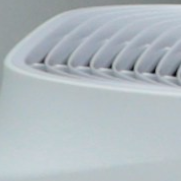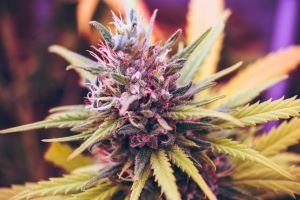
Second-hand marijuana smoke has made air purification devices a way of life for many apartment dwellers. They are looking to escape the cannabis odor from their neighbor’s binge smoking?
Air Purifier Remove Marijuana?
An air purifier may not remove all of the odor but it can help alleviate the problem. Making matters worse heavy smokers bombard all those nearby with hours or days of an odor hard to get rid of. Neighbors are not always sympathetic to your health issues even though they may be the source of the problem. Depending on the type of neighbors you have a friendly knock on the door to make them aware of the harm they are causing could be met with hostility. Extreme cases can result in physical harm.
Speaking with building management is another option.
Legal and other resources:
What about onsite HVAC? Not all buildings have a flexible HVAC system. Its limitations may not be able to address things like drifting marijuana odor. In many cases, you either move or find a way to lessen the hazard. Again, this is where air purifiers paid link come in. The level of odor removal you get will depend on how many air changes per hour your air purifier can make. The more the better. The less odor means less pollution and a healthier you.
Table of Contents
- Air Purifier Remove Marijuana?
- Essential Oil Diffusers Reduce Marijuana Smell
- You Have Options Not All Will Work
- Long-term Health Effects of Cannabis Use
- Cannabis Legislation
- Who Will Pay the Cost of Drug-Induced Air Pollution?
Essential Oil Diffusers Reduce Marijuana Smell
Using essential oil diffusers not only help reduce cannabis odor but is natural and each has its health benefits.
You Have Options Not All Will Work
It’s a bit of trial and error.
For those considering legal action, this can take time and require much information gathering to support your case. The final result may not always be in your favor. Often, this is why people will choose to move and avoid the hassle. But still, there is a certain feeling of defeat because moving comes at your own expense and inconvenience. Why should you have to move? You’ve done nothing wrong.
Long-term Health Effects of Cannabis Use
The sad truth is that second-hand cannabis smoke can have harmful effects on your health. Cannabis contains some of the chemicals that are in cigarettes. Marijuana use can cause damage to the lungs, bronchitis, nausea, chronic coughs, paranoia, anxiety, headache, rapid heartbeat, and difficulty with your immune system in fighting illness.
Some doctors are concerned about the growing use among the elderly . As we age health issues and pain tend to increase as do the use of prescription drugs.
Are we playing Russian roulette with the health of children and the elderly by making cannabis an alternative? Will this cause a rise in pre-existing respiratory and heart issue events?
Cannabis is believed to have medical uses, those who have unsuccessfully dealt with chronic pain are starting to consider cannabis an option. Since not all THC levels in cannabis are the same when combined with the use of other medications could result in a bad outcome? Not much is known about how many drugs will interact with cannabis.
Will overdosing and mixing prescription drugs become an issue? Overdosing does not mean death but an increase or exaggeration of side effects. To date, there have been no known cases of death due to marijuana. The elderly and anyone consuming high levels of weed throw in a few prescription drugs can risk worsening existing heart, blood pressure, and respiratory problems.

Cannabis Legislation
Over 23 states in the USA marijuana is now legal for recreational use. That is over half the country and the list continues to grow. Cannabis is soon to be classified as a less dangerous drug. We are no longer the nation of “just say no to drugs” like in the 80s under the Reagan administration. Instead, the government is placing less emphasis on public health and more focused on how much money can be made from legalizing/decriminalizing it so it can be taxed and require permits or a license to sell cannabis.
It’s like Deja Vu because a similar scenario occurred with alcohol and prohibition. Alcohol Prohibition existed from 1920 to 1933. It ended when the 21st Amendment repealed the 18th Amendment of the Constitution which legalized alcohol prohibition. In 1934, a year after prohibition ended the government moved to legalize and tax alcohol.
Sound familiar! Cha-ching!
Now, that more than 50 percent of states in the USA have legalized marijuana for recreational use, more research and data could be on the horizon.
In Europe for the most part, cannabis is illegal. Sweden does support the use of marijuana for medical purposes but recreational use is not legal. There are moves to introduce legislation to decriminalize it for limited amounts and ease penalties. But for the most part, Europe is proceeding with caution.
Who Will Pay the Cost of Drug-Induced Air Pollution?
Should we have taken more time to seriously consider the issue before jumping in and not thinking and maybe in some cases not caring about enabling even wider spread use of weed?
We are constantly polluting our environment with more and more chemicals. There is a limit to how much the human body can safely tolerate. Hopefully, we won’t see the day when cannabis addiction will parallel or even surpass that of cigarette smoking and tagging behind an upswing in health complications some yet to be discovered.
Someone will have to pay the cost of treating those who could need increased medical or psychiatric care. Most likely the taxpayer who currently pays for drug addiction programs. Sometimes we are so busy hearing the cha-ching of the cash register that we can’t see the writing on the wall.
It would be so much more beneficial if the government would spend less time extolling the economic benefits of legalizing/decriminalizing cannabis and more time on:
- investing in programs for the prevention of cannabis addiction and discouraging drug use. Especially, among the young who tend to be swayed by peers.
- Do more to educate the public on potential health pitfalls that can arise due to cannabis use
Be a part of the solution, not the problem.
